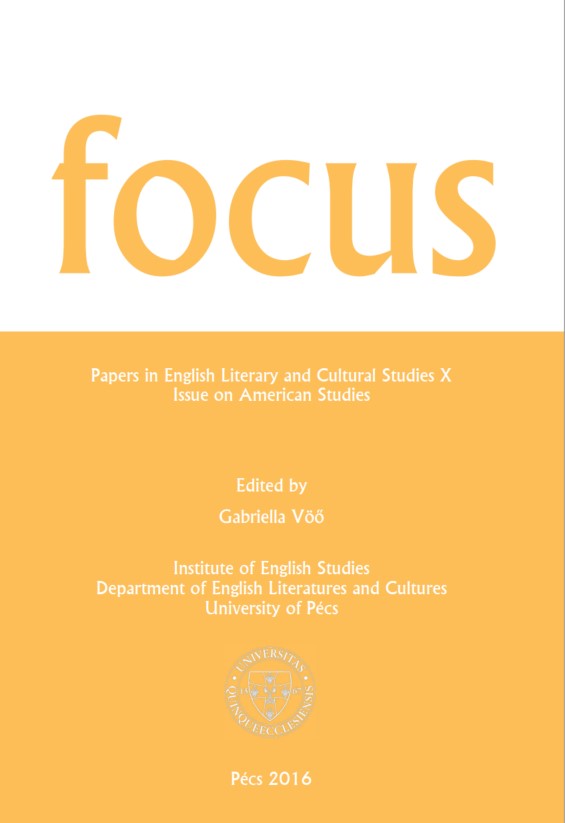Signifyin' the Unsayable Past in Toni Morrison's Beloved: The Case of the Newspaper Cutting
DOI:
https://doi.org/10.15170/Focus/10.2016.3.41-50Abstract
The essay surveys how Morrison’s Beloved rewrites African American history and the legacy of slavery by exposing racism encoded in language use through the example of the “newspaper cutting” in the novel. Beloved reverses existing accounts of the slave experience both from the perspective of the characters’ interactions and from the perspective of literary tropes used in it. The novel places oral and indirect communication over the formal system of writing, and by doing this produces a hybridized account of the slave experience. The paper focuses on how the contrast between written and oral storytelling is played out in the several uses of the newspaper cutting in the novel. The newspaper cutting tells Sethe’s story from the perspective of a white man, replete with images, while its several reproductions represent its chain of oral interpretations by the diverse racialized characters, eventually resulting in a hybridized story.
Downloads
Published
How to Cite
Issue
Section
License
Copyright (c) 2022 FOCUS: Papers in English Literary and Cultural Studies

This work is licensed under a Creative Commons Attribution-NonCommercial-NoDerivatives 4.0 International License.
FOCUS: Papers in English Literary and Cultural Studies follows the principles laid down by Creative Commons, which provides guarantees for the Author’s copyright while also ensuring that intellectual properties are made available for the wider public in a digital form. All papers submitted to the journal apply the following licence conditions (indicated on the journal’s website as well as in individual publications):
“© This work is licensed under a Creative Commons Attribution-NonCommercial-NoDerivatives 4.0 International License.”
You are free to:
- Share, copy and redistribute the material included in the journal in any medium or format under the following terms:
- Attribution — You must give appropriate credit to the Author, and indicate the original place of publication [FOCUS: Papers in English Literary and Cultural Studies, Issue nr., page numbers.].
- NonCommercial — You may not use the material for commercial purposes.
- NoDerivatives — You are not allowed to remix, transform, or build upon the material.
- The above conditions must always be indicated if the journal material is distributed in any form.
- The above conditions must always be met, unless a written permission signed by the Author and the Editor-in-Chief states otherwise.

